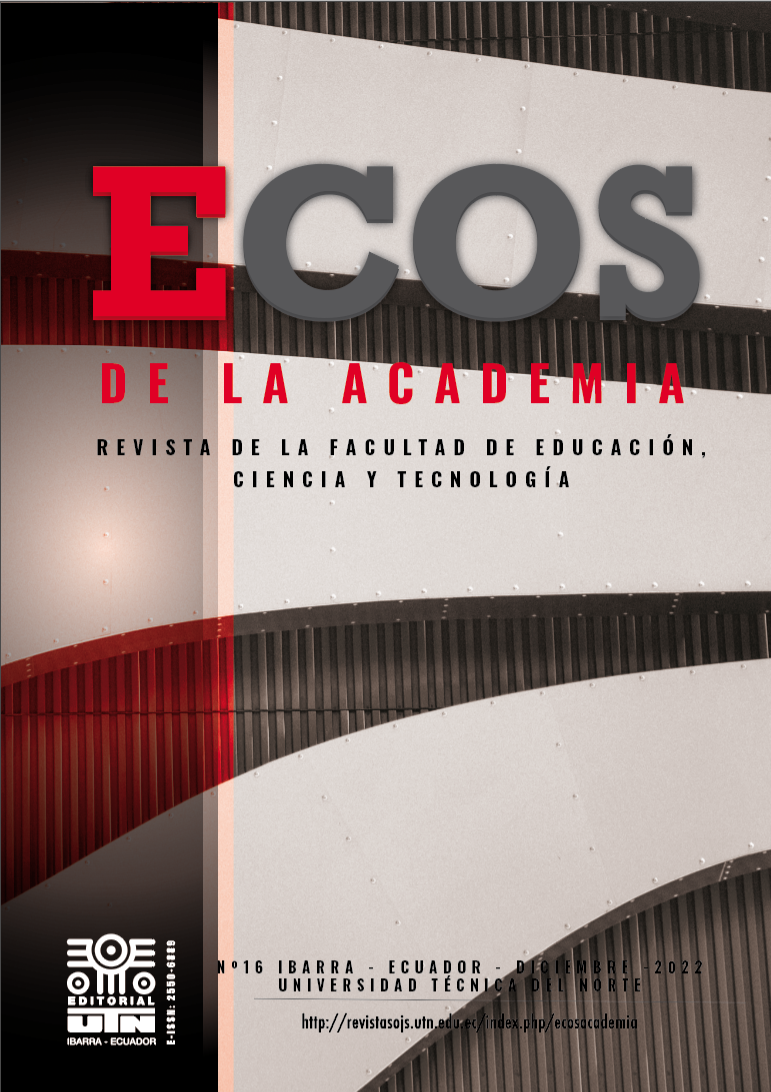Las estrategias de aprendizaje y motivación en los estudiantes de la carrera de educación inicial modalidad en línea de la Universidad Técnica del Norte
Main Article Content
Abstract
Academic Performance in university students is a study interest within the scientific community; On the other hand, the importance that internal processes can have and how they can influence learning has been studied, where motivation stands out. This research focuses on the relationship of learning strategies and motivation used by university students in the online Initial Education career to achieve goals in the academic context. The research has a quantitative approach, and within the framework of this, its scope is descriptive and correlational, the design of the research is non-experimental and its type is transversal. 199 students participated to whom the Motivation questionnaire and Learning Strategies was applied in digital format in Forms, once the data was obtained, these were migrated to the SPSS for the respective tabulation. The results obtained show that the total number of subjects to some extent put into practice tools to improve performance and actively participate in learning and maintain a high level of motivation. As for the relationship of the variables, Pearson's Chi-square test yielded a p-value less than 0.05, therefore, there is a relationship between learning strategies and motivation which through the V of Cramer test could be evidenced is a moderate relationship. In conclusion, although the relationship is moderate, the two variables almost come to an equal, implying that university students maintain reasons that encourage them to learn and for this they use strategies that bring them closer to meeting goals established in the academic context.
Downloads
Article Details

This work is licensed under a Creative Commons Attribution-NonCommercial-NoDerivatives 4.0 International License.
The authors transfer the publication rights to the journal in all its formats and digital media.
Regarding Copyright CC BY-NC-SA 4.0, this journal is under a license of https://creativecommons.org/licenses/by-nc-sa/4.0/.
You are free to:
Share: copy and redistribute the material in any medium or format
Adapt: remix, transform, and build upon the material
The licensor cannot revoke these freedoms as long as you follow the license terms.
Under the following terms:
1. Attribution: You must give appropriate credit, provide a link to the license, and indicate if changes were made. You may do so in any reasonable manner, but not in any way that suggests the licensor endorses you or your use.
2.Non-Commercial:You may not use the material for commercial purposes.
3. ShareAlike: If you remix, transform, or build upon the material, you must distribute your contributions under the same license as the original.
4.No additional restrictions: You may not apply legal terms or technological measures that legally restrict others from doing anything the license permits.
Notices:
You do not have to comply with the license for elements of the material in the public domain or when your use is permitted by an applicable exception or limitation.
No warranties are given. The license may not grant you all the permissions necessary for your intended use. For example, other rights such as publicity, privacy, or moral rights may limit how you use the material.
LEGAL CODE CC BY-NC-SA 4.0





